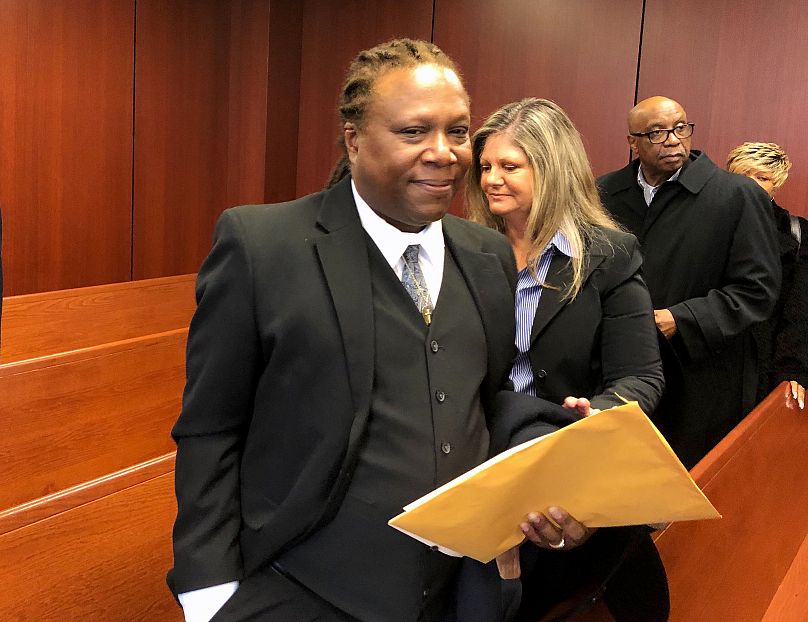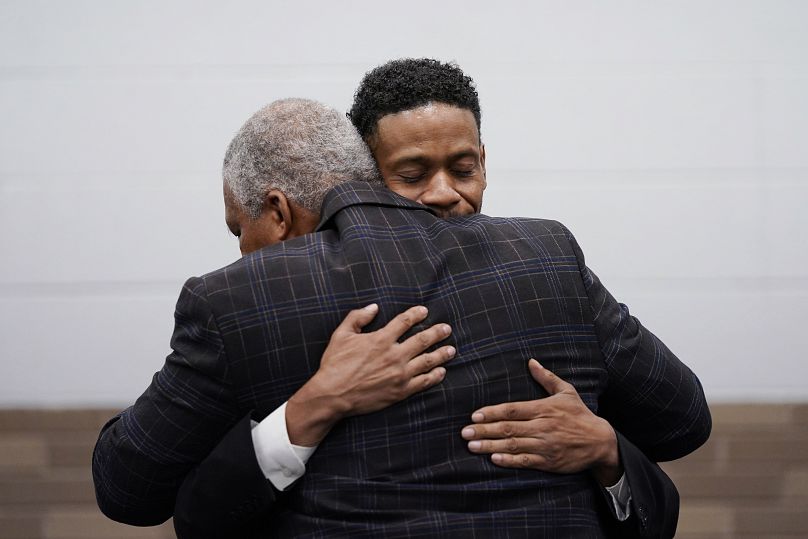Five years after the death of Aretha Franklin, the final wishes of the music superstar are still unsettled. Thus begins a unique trial, a tale of two wills.
Five years after her death, the final wishes of music superstar Aretha Franklin are still unsettled.
An unusual trial begins next Monday to determine which of two handwritten wills, including one found in couch cushions, will guide how her estate is handled.
The Queen of Soul, who had four sons, did not have a formal, typewritten will in place, despite years of health problems and efforts to get one done. But under Michigan law, it's still possible to treat other documents — with scribbles, scratch-outs and hard-to-read passages — as her commands.
The dispute is pitting a son against other sons. Ted White II believes papers dated in 2010 should mainly control the estate, while Kecalf Franklin and Edward Franklin favour a 2014 document. Both were discovered in Franklin's suburban Detroit home, months after her death from pancreatic cancer in 2018 at age 76.
“Does it surprise me that someone passed away before they had their ducks in a row? The answer is never,” said Pat Simasko, who specializes in wills and estates and teaches elder law at Michigan State University College of Law.
“This can be settled any time, on the steps, halfway through trial,” he said. “And hopefully it will be. Going to a jury trial is a war.”
A Tale of Two Wills
Following Franklin’s death, it was immediately known that the celebrated singer behind hits like ‘Respect’, ‘I Say a Little Prayer’ and ‘A Natural Woman’ had died without a will. This meant her four sons likely would share assets worth millions, including real estate in suburban Detroit, furs, gowns, jewellery and future royalties from her works. A niece, Sabrina Owens, agreed to be personal representative or executor.
Months later, in spring 2019, the estate was turned upside down.
Owens reported that a handwritten will dated 2010 was found in a cabinet and another handwritten will, dated 2014, was discovered inside a notebook under cushions at Franklin's home.
There are differences between the documents, though they both seem to indicate the sons would share income from music and copyrights. The older will lists White and Owens as co-executors and says Kecalf and Edward Franklin “must take business classes and get a certificate or a degree” to benefit from the estate.
But the 2014 version crosses out White's name as executor and has Kecalf Franklin in his place. There's no mention of business classes. Kecalf Franklin and grandchildren would get his mother's main home in Bloomfield Hills, which was valued at $1.1 million when she died but is worth much more today.
“It’s the crown jewel,” said Craig Smith, attorney for Edward Franklin.
Aretha Franklin wrote in 2014 that her gowns could be auctioned or go to the Smithsonian Institution in Washington. She indicated in both papers that oldest son, Clarence, who lives under a guardianship, must be regularly supported.
“Two inconsistent wills cannot both be admitted to probate. In such cases the most recent will revokes the previous will,” Charles McKelvie, a lawyer for Kecalf Franklin, said in a court filing in favor of the 2014 document.
But White's attorney, Kurt Olson, said the 2010 will was notarized and signed, while the later version “is merely a draft.”
“If this document were intended to be a will there would have been more care than putting it in a spiral notebook under a couch cushion,” Olson said.
Estate, assets and the IRS
Simasko, the law instructor, said final wishes can be fulfilled in Michigan through an informal will.
“If you’re sitting there on a Sunday afternoon and you start handwriting your own wishes, the law allows it as long as the rules are followed: It's in your handwriting, it's dated and it's signed,” he said.
For five years, Aretha Franklin's estate has been handled at different times by three executors. Owens quit in 2020, citing a "rift" among the sons.
She was succeeded by Reginald Turner, a local lawyer who also served as president of the American Bar Association. His last accounting in March showed the estate had income of $3.9 million during the previous 12-month period and a similar amount of spending, including more than $900,000 in legal fees to various firms.
Overall assets were pegged at $4.1 million, mostly cash and real estate, though Franklin's creative works and intellectual property were undervalued with just a nominal $1 figure.
The estate since 2020 has paid at least $8.1 million to the Internal Revenue Service, which had a claim for taxes after the singer's death, court filings show.
“The IRS claims took priority. The estate wasn't going anywhere until the IRS got paid off,” Smith said.
The trial begins on Monday 10 July.






